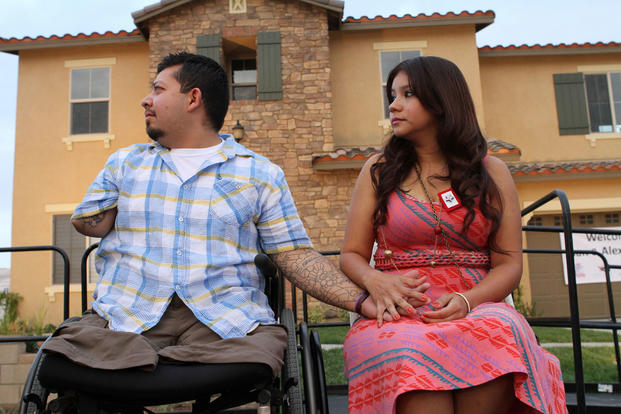When the Department of Veterans Affairs last week announced a decision to open a research center for military veteran caregiver issues, it did more than just make a plan to study caregiver needs, says Steve Schwab, the executive director for the Elizabeth Dole Foundation.
It also signaled to veteran caregivers and their advocates that their issues deserve a broad, focused effort.
"Every milestone that we've made over the last seven years with respect to the caregiver cause has been significant," he said. "But this is especially significant because institutionally, inside the VA system, there has not been a wide embrace of the needs of support for this population."
Schwab and the Elizabeth Dole Foundation, which advocates for military caregivers, believe that investing in veteran caregivers -- an estimated 5.5 million nationwide -- will have a dramatic, positive impact on the long-term health of veterans. In other words, he said, spending money on caregiver issues and support means spending less money later on veteran problems.
The VA currently runs a number of "Centers of Excellence" that focus on a variety of veteran-specific health issues, including traumatic brain injury (TBI) and post-traumatic stress disorder.
But caregiver help has historically been a tough sell at the agency, where policy and practice around the topic has been something of an afterthought. For example, the VA provides some caregiver training and support groups and runs a stipend program that pays caregivers to take care of their veteran instead of hiring outside help, but the program can be difficult to access. Although it has a budget of more than $500 million, most of which is spent on caregiver stipends, its work is currently not supported by VA-funded research or best practice development.
And that's why the agency's decision to open a Center of Excellence around caregiver issues is a milestone. Instead of focusing on the veteran first and the caregiver as a tool, this research will focus at least in part on caring for the caregiver.
"I feel like we are building a case internally and infrastructure internally inside the system to recognize this population, and now we're building the robust infrastructure to support them," Schwab said.
One of the center's key points is its use of caregivers themselves in research and policy, VA officials said at the rollout last week.
Among those at the center of that effort is Roxana Delgado, a PhD. who has made a career of working on veteran caregiver issues. Delgado knows the subject well because she is a caregiver herself. Her husband, retired Army Sgt. 1st Class Victor Medina, sustained a TBI in Iraq. And while she still works for his continued care, she is also advocating for caregivers as both a researcher collaborating with the VA and a fellow with the Elizabeth Dole Foundation.
Delgado said the lag time between research and findings being applied to any given population is about 15 years. But the military community, she said, doesn't have that kind of time.
"We need a center that is critical in taking data and translating it to practice right away," she said. "We need a center that can give hope to caregivers not by a nice word but by action, by understanding better our critical needs and turning around and translating that into resources that can be given directly to the caregiver."
Much of the foundation's work has focused on the concept of caregivers as "hidden heroes." But Delgado has hope that such a title will soon no longer be an accurate description.
"There's now a focus, the 'hidden heroes' are no longer hidden, and we're better equipped as a nation to understand them," she said.
-- Amy Bushatz can be reached at amy.bushatz@military.com.










